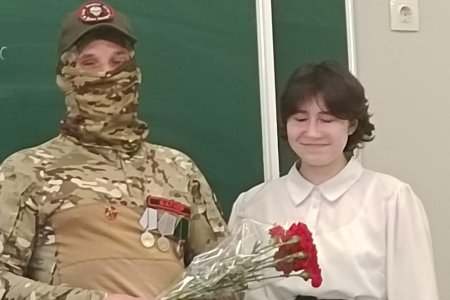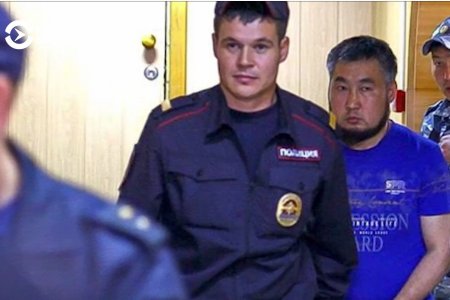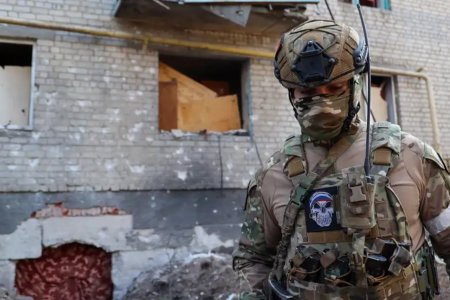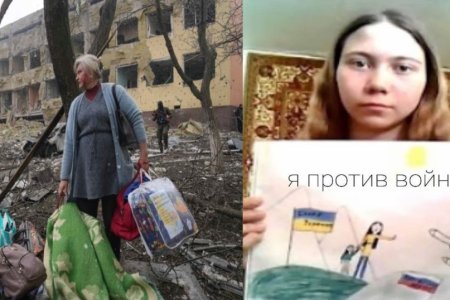
In the two years since Russia began recruiting convicted prisoners for its full-scale invasion of Ukraine, over 400 memorial plaques have been erected, many in schools, to these new ‘Russian heroes’. Children are being encouraged to glorify men who were serving long sentences, sometimes for horrifically violent crimes, and who agreed to fight in Ukraine as mercenaries, with their price including not only money, but a ‘presidential pardon’ and their freedom. No such inconvenient details are, of course, mentioned on the memorial plaques for those killed fighting Russia’s war. The Russian authorities have also tried to conceal the bloody crimes committed by those who were not killed fighting and have come home with a clean slate and carte blanche to commit new crimes.
The independent Russian publication Verstka Media has thus far found memorial plaques to 408 former prisoners who were released to fight against Ukraine and did not survive to enjoy their waived sentence. Verstka mentions that it was in the summer of 2024 that Yevgeny Prigozhin began recruiting convicted prisoners from Russian penal institutions into his so-called ‘Wagner private military company’ [the Wagner unit]. Although it was only then that Prigozhin admitted to his leading role in the Wagner Unit, the latter had been fighting Russia’s war against Ukraine since 2014 and its men had received training on Russian defence ministry sites. There was never any possibility that Prigozhin could have openly recruited prisoners from Russian penal institutions without support both from Russia’s penal service and from the Kremlin, given that the prisoners received pardons signed by Russian leader Vladimir Putin. Since 2023, the recruitment of prisoners has been by Russia’s defence ministry and, seemingly, without a fixed term contract.
Russia has been glorifying mercenaries wanted for war crimes in Ukraine since 2014, including many, like Arsen Pavlov (‘Motorola’) whose death Russia may have been behind. Since Russia’s full-scale invasion of Ukraine, ‘veterans’ are systematically glorified, regardless of how they came to be in Ukraine, of the crimes they were convicted of earlier, or of the legitimate grounds for suspecting them of war crimes in Ukraine. In April 2022, for example, as more and more evidence emerged of Russian atrocities in Bucha, Putin ‘honoured’ the 64th Motor Rifle Brigade believed to behind those very crimes. By September 2022, Putin had also endowed a posthumous award ‘for bravery’ on Ivan Neparatov, the leader of a criminal gang who had been serving a 25-year sentence for five murders and multiple other crimes when he took up the offer of his freedom, a pardon and money in exchange for fighting in Ukraine.
Another method of glorifying convicted criminals released to fight, and die, in Ukraine, is through memorial plaques on war monuments, streets or apartment blocks. Their portraits are also displayed on school stands, ‘corners of remembrance’ or ‘heroes’ desks’ in schools.
Verstka has found at least 408 such methods to honour former convicted prisoners killed fighting in Ukraine in 58 regions of the Russian Federation.
The most common crimes for which these ‘heroes’ had been serving sentences were (in 128 cases) murder; attempted murder and grave bodily injury resulting in death. This was followed by 110 cases involving drug-related crimes. There were also crimes involving armed robbery, theft, banditry, and also, in two cases, rape or other forms of sexual violence. Many had been convicted of different types of such crimes, and over half of them were repeat offenders. The 123 ‘heroes’ convicted of murder, whom Verstka was able to identify, were responsible altogether for the killing (before fighting in Ukraine) of 143 victims.
Vasily Amagachan from Magadan oblast had been serving the third of three sentences (for robbery, murder and for attacking prison staff) and was due to be released at the end of 2026. He agreed instead to fight in Ukraine and was killed just three weeks after arriving at the front, on 2 November 2023. All of this Verstka learned from court documents, since the material available on the memorial plaque in a local school and from the local authorities gives a very different impression. We learn that the young man was born in 1995 into a family of reindeer herders and ‘observed the traditional way of life of his ancestors’; that he had played the guitar at school, written songs and was involved in Greco-Roman wrestling. We are told that in his youth, he had dreamed of military service, and then jump to his having “entered military service on contract into the Russian armed forces from 13.10.2023 to take part in the special military operation” [Russia’s euphemism for its war against Ukraine. The school plaque was formally unveiled on 22 April 2024 with the students out in line, singing Russia’s national anthem, a speech from the school head and a minute’s silence.
Verstka reports that at least 56 such memorial plaques to different former prisoners have been erected in educational or other children’s institutions. Among others, they honour Ivan Mitin, who was first convicted of grievous bodily harm causing death, then later of knifing to death his own uncle. The plaque at the ‘social rehabilitation centre’ which he had attended shows a picture of him, with dates of birth (in 1986) and “heroic” death on 24.02.2023, date he finished the centre and calls him “a volunteer of the Wagner private military company’. Although systematically ignored since at least 2014, fighting as a mercenary continues to be a crime even in Russia, and all those who fight against Ukraine for money and release from prison are invariably dubbed ‘volunteers’. Mitkin was just one of at least 12 men who had been convicted for murder or grievous bodily injury causing death. A village school in Dagestan has a plaque memorializing Yunus Selimov, who was convicted of carrying out a commissioned blood vengeance killing and burying his victim alive.
Verstka also identified stands in schools or kindergartens where at least 19 former convicted criminals were treated like ‘war heroes’, while there were corners of remembrance and exhibits devoted to 26 such former prisoners in school and regional museums. A school-orphanage in Kostroma oblast, for example, had portraits of Andrei Kolesnikov and Pavel Varochka. Kolesnikov had served three sentences, with the last 11-year sentence, waived because he agreed to fight in Ukraine, being for killing his brother. Varochka had been serving a 12-year sentence for drug offences, with these including forcing his 13-year-old daughter and her 14-year-old friend, under threat of violence, to use drugs.
In all such cases the memorial plaques omit details about the men’s crimes and sentences and treat them as heroes. The same is true of many of the so-called ‘veterans’ whom Russia is using to ‘teach children about courage’. The same regime has imposed huge sentences for telling the truth about Russia’s crimes in Ukraine or for ‘discrediting’ the Russian armed forces and others involved in Russia’s war of aggression, with this including Wagner unit mercenaries.
Despite efforts by the authorities, it has proven impossible to muffle at least some of the gruesome murders committed by former prisoners, released and pardoned for their killing services in Ukraine. Some have even received new sentences. It is, however, unclear if any of these men will serve the sentences as Russian legislators have now made it possible for virtually any, except political, prisoners to sign contracts to fight in Ukraine rather than awaiting trial or appeal, or serving new sentences.
Such ‘veterans’ are the people whom Putin is claiming are Russia’s ‘elite’ who should become role models for youth both in Russia and in occupied parts of Ukraine.
See also:
Agree to kill Ukrainians and Russia will free all but political prisoners



